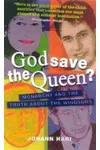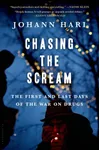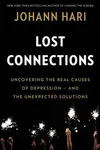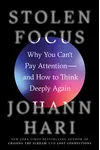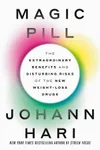Picture a British journalist who turned the world’s understanding of addiction and attention upside down—meet Johann Hari! With a knack for blending razor-sharp research with heartfelt storytelling, Hari has become a global voice on mental health, addiction, and our distracted lives. His books, translated into over 30 languages, and TED Talks, nearing 100 million views, make him a storyteller you can’t ignore.
From challenging the war on drugs to unraveling why we can’t focus, Hari’s work is a wake-up call wrapped in hope. Ready to dive into his fascinating journey? Let’s explore how this Glasgow-born writer became a game-changer.
The Making of Johann Hari
Born on January 21, 1979, in Glasgow, Scotland, Johann Hari grew up in London after his family relocated. Raised by a Scottish mother and Swiss father, his childhood wasn’t always easy—he’s spoken candidly about experiencing physical abuse while his parents faced their own struggles. Despite these challenges, Hari’s curiosity shone through. He attended the John Lyon School and later Woodhouse College, fueling his passion for writing. By his 20s, he was a rising star at *The Independent*, crafting bold columns on social issues.
But Hari’s early career hit turbulence in 2011 when he admitted to plagiarism and fabrication, leading to his resignation. Far from fading away, he used this setback to reinvent himself, diving into long-form books that would redefine his legacy. His resilience and honesty about past mistakes only deepen his appeal.
Johann Hari’s Unforgettable Stories
Hari’s books are like a road trip through the human psyche—thought-provoking, deeply researched, and impossible to put down. His 2015 debut, *Chasing the Scream: The First and Last Days of the War on Drugs*, took him on a 30,000-mile journey to uncover the roots of addiction. From Billie Holiday’s tragic persecution to Portugal’s radical decriminalization, Hari argues that connection, not punishment, is the antidote to addiction. The book inspired an Oscar-nominated film and an eight-part documentary.
In 2018, *Lost Connections: Uncovering the Real Causes of Depression—and the Unexpected Solutions* tackled mental health. Hari challenges the idea that depression is just a chemical imbalance, weaving science and personal anecdotes to highlight social and environmental triggers like isolation and trauma. His 2022 bestseller, *Stolen Focus: Why You Can’t Pay Attention—and How to Think Deeply Again*, dives into our fractured attention spans, blaming tech overload and modern lifestyles. His latest, *Magic Pill* (2024), explores the promise and perils of new weight-loss drugs.
Hari’s style is immersive and human. He pairs meticulous research—hundreds of expert interviews—with vivid stories, making complex issues feel personal. His themes of connection, empathy, and societal reform resonate across cultures, earning praise from Oprah to Noam Chomsky.
Why Johann Hari Matters
Johann Hari’s impact lies in his ability to shift how we see ourselves and our world. His work has sparked global conversations, from drug policy reform to mental health awareness. By framing addiction and depression as social issues, not just personal failings, he’s empowered readers to seek connection and advocate for change. His TED Talk, “Everything You Think You Know About Addiction Is Wrong,” has reshaped public discourse, with nearly 100 million views across platforms.
Hari’s books don’t just inform—they inspire action. Whether it’s a policymaker rethinking drug laws or a reader rediscovering focus, his ideas ripple outward. In a distracted, disconnected age, Hari’s call for human connection feels more urgent than ever.
About Johann Hari
- Born: January 21, 1979, Glasgow, Scotland
- Key Works: *Chasing the Scream* (2015), *Lost Connections* (2018), *Stolen Focus* (2022), *Magic Pill* (2024)
- Awards: Named Newspaper Journalist of the Year by Amnesty International UK
- Fun Fact: His books are translated into over 30 languages!
Snag *Stolen Focus* or *Chasing the Scream* and dive into Johann Hari’s world of big ideas and bold stories. Trust us, your brain will thank you!
